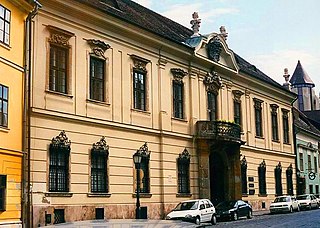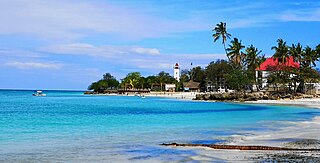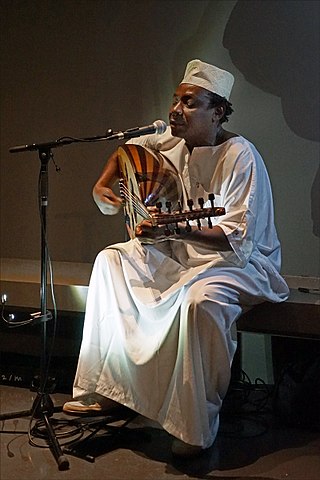Given the vastness of the African continent, its music is diverse, with regions and nations having many distinct musical traditions. African music includes the genres amapiano, jùjú, fuji, afrobeat, highlife, Congolese rumba, soukous, ndombolo, makossa, kizomba,Taarab and others. African music also uses a large variety of instruments from all across the continent. The music and dance of the African diaspora, formed to varying degrees on African musical traditions, include American music like Dixieland jazz, blues, jazz, and many Caribbean genres, such as calypso and soca. Latin American music genres such as cumbia, salsa music, son cubano, rumba, conga, bomba, samba and zouk were founded on the music of enslaved Africans, and have in turn influenced African popular music.

As it is in other countries, the music in Tanzania is constantly undergoing changes, and varies by location, people, settings and occasion. The five music genres in Tanzania, as defined by BASATA are, ngoma, dansi, kwaya, and taarab, with bongo flava being added in 2001. Singeli has since the mid-2000s been an unofficial music of uswahilini, unplanned communities in Dar es Salaam, and is the newest mainstream genre since 2020.

Kuwait is well known in the region for its exploration of many different and new forms of music and dance. Kuwait is the birthplace of various popular musical genres such as sawt. Kuwait is widely considered the centre of traditional music in the GCC region.

Festál is a free series of annual ethnically-related festivals that take place on the grounds of Seattle Center in Seattle, Washington. A major cultural program of Seattle, these festivals aim to celebrate and connect the city to its varied ethnic and international community. Most festivals contain various arts performances, dances, marketplace and other programs. These have also come to be the annual gathering place for ethnic groups of the community. Both older and younger people attend, especially the dances and musical concerts.

Taarab is a music genre popular in Tanzania and Kenya. It is influenced by the musical traditions of the African Great Lakes, North Africa, the Middle East, and the Indian subcontinent. Taarab rose to prominence in 1928 with the advent of the genre's first star, Siti binti Saad.

The music of West Africa has a significant history, and its varied sounds reflect the wide range of influences from the area's regions and historical periods.

Budapest has long been an important part of the music of Hungary. Its music history has included the composers Franz Liszt, Ernő Dohnányi, Zoltán Kodály and Béla Bartók and the opera composer Ferenc Erkel.

Following Tanganyika's independence (1961) and unification with Zanzibar (1964), leading to the formation of the state of Tanzania, President Julius Nyerere emphasised a need to construct a national identity for the citizens of the new country. To achieve this, Nyerere provided what has been regarded by some commentators as one of the most successful cases of ethnic repression and identity transformation in Africa.

Fatuma binti Baraka, popularly known as Bi Kidude, was a Zanzibari-born Tanzanian Taarab singer. She has been called the "queen of Taarab and Unyago music" and was inspired by Siti binti Saad. Born in the village of Kitumba in modern-day Kati District of Unguja South Region and raised the village of Mfagimaringo, Bi Kidude was the daughter of a coconut seller in colonial Zanzibar. Bi Kidude's exact date of birth is unknown and much of her life story is uncorroborated, but she was believed to be the oldest touring singer in the world before her death. In 2005, Bi Kidude received the WOMEX award for her contribution to music and culture in Zanzibar. She was the subject of two documentaries by film maker Andrew Jones.
Afro-Arabs, African Arabs, or Black Arabs are Arabs of full or partial indigenous African descent. These include primarily minority groups in the United Arab Emirates, Yemen, Saudi Arabia, Oman, Kuwait, Qatar, and Bahrain, as well as Iraq and Levant: Syria, Palestine, and Jordan. The term may also refer to various Arab groups in certain African regions.

In many parts of sub-Saharan Africa, the use of music is not limited to entertainment: it serves a purpose to the local community and helps in the conduct of daily routines. Traditional African music supplies appropriate music and dance for work and for religious ceremonies of birth, naming, rites of passage, marriage and funerals. The beats and sounds of the drum are used in communication as well as in cultural expression.

Siti binti Saad was a pioneering Tanzanian musician in the taarab musical style. Through her music she was also an anti-colonial activist, feminist and Swahili cultural icon of 20th century. She produced over 250 phonograph records throughout her lifetime, becoming the first East African vocalist to release commercial recordings in the 1920s and 1930s. She also added a brand-new dance and pantomime component to taarab music called "natiki," which was inspired by Indian dance. She was a trailblazer as a female performer in the genre during a time when men artists controlled the industry. She performed in a variety of languages, but most significantly in Swahili, in contrast to earlier vocalists who solely sang in Arabic. She sang in cities of the coast of Tanganyika and Zanzibar.
Chakacha is a traditional music and dance style of the Swahili people of coastal Kenya and Tanzania, originally associated with weddings and performed and watched by women. In the late 20th century, musical groups such as Mombasa Roots, Safari Sound Band and Them Mushrooms have adapted this style to afropop music. The women dress in very light, transparent clothing and have a belt around their waists for ease of movement. It is also loosely associated with Taarab, another type of music style adapted by the coast and mainly performed by women. A very popular coastal tradition, with Arabic poetry, taarab has been used as a sarcastic way of delivering a message across.

Zanzibar International Film Festival (ZIFF), also known as Festival of the Dhow Countries, is an annual film festival held in Zanzibar, Tanzania and one of the largest cultural events in East Africa. ZIFF is a non-governmental organization established in 1997 to develop and promote film and other cultural industries as catalyst for the regional social and economic growth.
Kidumbaki or kidumbak is a Zanzibari musical genre. It is closely related to taarab but it is played by smaller ensembles. The typical kidumbaki band comprises a fiddle, a sanduku, a bass, and two "kidumbak" drums. Traditional percussions such as cherewas are sometimes used as well.

Nungwi, or Ras Nungwi, is a large village located in the far northern end of the island of Zanzibar. With a population of 30,762, Nungwi is the second largest settlement on the island. It is situated in the Nungwi Ward in the Kaskazini A District of the Unguja North Region. It is about 35 miles (56 km) north of Zanzibar Town on the Nungwi Peninsula, about an hour drive from Stone Town. To the south Nungwi shares a border with the neighboring Matemwe- and Tazari villages. Nungwi was traditionally a fishing village and dhow-building center, but is now a popular tourist destination, and for instance recognized in CNN’s list of "100 best beaches of the world" in 2014. West Nungwi has changed a lot since the 1990s and is now a popular tourist destination with numerous resorts, restaurants, bars, stores, etc. East Nungwi is quieter and generally more laid-back.
Ricardo Garcia is a Spanish guitarist, leader of the group Flamenco Flow, who is known for his interpretations of Flamenco blended with other musical forms.
Brave Festival – Against Cultural Exile is an annual Polish music festival launched in 2005 by Song of the Goat Theatre Association. It takes place in Wroclaw, as well as in other cities in Lower Silesia. Since inception, artists from all over the world have been invited to present their musical/cultural traditions. The festival is intended as an opportunity for attendees to speak about where they come from, their values, their traditions and their spirituality. It aims to save and protect forgotten, abandoned and forlorn cultures. Brave Festival also has a project called Brave Kids, which aims is to introduce, integrate and start a collaboration of artistic groups of childs from different continents. Grzegorz Bral is the director of Brave Festival.

Mohamed Issa Haji 'Matona is a Zanzibarian musician. He is a founder and the artistic director of Zanzibar's Dhow Countries Music Academy.













